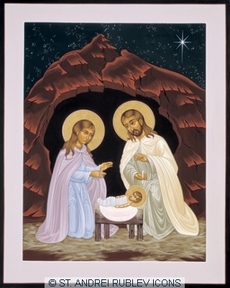 Recently I was reminiscing about the first home I lived in until I was about three years of age. I told a story was about how my older brother loved to play a joke on my parents when we were toddlers. He somehow got me out of my crib, walked me over to his, got me up over the bars of the crib and had me join him, waiting for our parents to come into the room. The first time he did it my parents were shocked when they entered the room to find me missing from my crib. But then they turned and saw us both standing in my brother's crib laughing at this fun trick we had played on them. I am not sure how my brother pulled this off, but apparently he was rather proud of himself, and my parents were amazed at his ingenuity. It is a great story and I have enjoyed sharing it over the years. However, the reality is that I do not remember this event at all. The memory was “given to me” by my parents who re-told the story many times during my life. I tell the story now as if I truly remember it, but frankly, I have no recollection of it at all. However, that does not mean the story has no importance or that I cannot tell it as if it is my memory. It is part of my "history" so there is no reason I cannot claim it as my own. It is part of the relationship I had with my brother at that time and the relationship we had with our parents. It says something about our personalities even in the beginning of our lives. I believe this is true of the stories of our faith as well. If we really listen, all the stories of Scripture are about us, even though we were not there at the time. For example, on the feast of the Holy Family we hear about Mary, Joseph, and the infant Jesus being visited by the Magi. At first glance we might not feel we can relate to this touching scene since none of us have perfect parents and we did not have rich astrologers show up at our homes bearing extravagantly expensive (and mysterious) gifts. But we can relate to the joy of birth, the gifts given by friends, and a growing family trying to define itself with the addition of a new baby. We might not be able to relate to having to flee because someone wants to murder the child, but we can relate to the worry of new parents trying to protect their new baby in a dangerous world.  The Scriptures are the Word of God. That is, it is His message of truth, wisdom, compassion, and love to us. What is important is that we look not so much at the details of biblical stories, as we look at the message the stories contain. At the Mass on Christmas Day, for example, the gospel reading was from the beginning of John's Gospel. Interestingly, this same reading is repeated less than a week later. Therefore we can surmise that the message of it must be important. "In the beginning was the Word, and the Word was with God, and the Word was God. He was in the beginning with God. All things came to be through Him, and without Him nothing came to be. What came to be through Him was life, and this life was the light of the human race; the light shines in the darkness, and the darkness has not overcome it." (John 1:1-5) The gospel writer is telling us about the beginning of creation, a time we really cannot fathom, let alone recollect. However, God revealed to John the reality of His own presence as the Trinity so that it would become part of our understanding of who He is. Just as my parents told stories which in turn I re-tell, God wants us to know of a time we cannot remember, but which is important to our understanding of who He is and who we are in relation to Him. In the beginning of time, God already existed as Father, Son, and Spirit. The Son who came into the world as both God and man, born of a human mother and the Spirit of God, is in fact God's message of love to us. He is both the message and the messenger. The little child is Love incarnate. That Child came so that we might always walk in the light of Love, and not be lost in the darkness of sin and the imperfections of our world. Jesus, Emmanuel, God with us, is here with us forever in order to walk with us, giving us courage when we are fearful, compassion when we sin, mercy when we grow cold to Him, comfort when we are ill or hurting, and peace when we are in turmoil. He is the everlasting God, come into our world as one of us, in order to help us to understand His message of love and peace. And to make sure we really got the message, He suffered and died for us and our sins, rising again on the third day so that we would understand that He wants us to be with Him forever in Heaven. 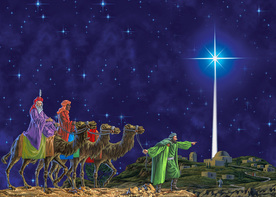 The Word of God, Jesus, also wants us to know who we are to Him. We hear the stories repeatedly so that we are clear about our relationship to God. We are nothing less than beautiful and beloved. We are His: it is to Him that we belong. Yes, we are sinners, but we are loved sinners, always welcomed back by the One to whom we belong. We must never lose sight of who we are and whose we are. Therefore the Church retells the stories over and over, so that we might discover more about God our Father, His Son (the Word became flesh), and the Holy Spirit, and about ourselves in relation to Him. We know there is evil and suffering in the world which is part of the brokenness of all things, the darkness that Jesus has come as light to overcome. Many of us struggle with a myriad of challenges and sufferings. So did the Word, Jesus. He had to run for His life before He even spoke a word of teaching or challenged a Pharisee. He was homeless and in exile before His childhood had started. He was poor and outcast in Egypt before settling in the humble town of Nazareth. Though He had a perfect mother, He suffered the loss of His father while He was still a young man, bearing the burden of being the provider for His widowed mother. He lived in an unjust society, oppressed by a regime which took advantage of His people. He lived in a world where life was not fair, just as we do. He knew the kinds of suffering we bear in our lives because He lived it in His own. Therefore, let us continue to look to the beginning. What are the stories in our personal history that inform us of our identity, or which formed us into the men and women we are today? Perhaps in the re-telling of the humorous or more serious memories we have, and the ones told to us by our parents which are really not so much our memories as they are given to us to help us know something of our rootedness, we can come to understand who we are and whose we are. Perhaps we can apply this to the memories given to us by God in the stories of our faith. These are as real as any other stories of our lives; and more than any other stories, they reveal the very heart of God as the one who created us and loved us from the very beginning of time. In the beginning was the Word, the Son of God, who loved us so much that He chose to enter into our world to help us know the depth of that love. In the beginning the message was the same as it is today: we are beautiful and beloved, and we are His. May we have joy of knowing who we are by remembering the stories that formed us into the men and women we are today! May we have the deep knowledge of our identity as being sons and daughters of God, loved from the beginning! May we come to know the love of the Word, the one who was in the beginning and who came into the world to bring us salvation and joy! And may we come to have gratitude for knowing who we are and whose we are eternally! Let us continue to share in the joy of the Christmas season, meeting in the Heart of the Lord, the Word who has come to shine light in darkness! Peace! ©Michele L. Catanese The icon, The Nativity of Our Lord Jesus Christ is the work of Rev. William Hart McNichols and can be found at http://www.fatherbill.org/all-categories/product/287-the-nativity-of-our-lord-jesus-christ The photo was taken by the Hubble telescope. 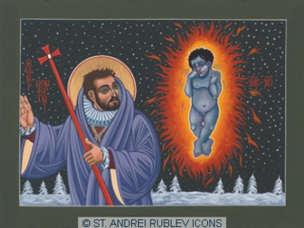 Glory to God in the highest! And on earth peace to those on whom His favor rests! (Luke 2:14) For the vigil of the Feast of the Nativity of the Lord I thought it was fitting to share a poem of St. Robert Southwell, the English Jesuit martyr. His poem, The Burning Babe, is very beautiful and reminds us why the Son of God came into the world. He came to save souls that He might bring them into the Kingdom for life eternal with Him. In this season of joy it is important to remember that as disciples our role is to continue to bring Him to others, especially those whose hearts have grown cold, or those who do not know who He is. As we celebrate in whatever way we are used to, let us not forget those who are alone, ill, downtrodden, poor, marginalized, or outcast in any way, now and throughout the coming year. Let our hearts burn with love, as does the Babe who enters the world at Christmas. The Burning Babe As I in hoary winter’s night stood shivering in the snow, Surpris’d I was with sudden heat which made my heart to glow; And lifting up a fearful eye to view what fire was near, A pretty Babe all burning bright did in the air appear; Who, scorched with excessive heat, such floods of tears did shed As though his floods should quench his flames which with his tears were fed. “Alas!” quoth he, “but newly born, in fiery heats I fry, Yet none approach to warm their hearts or feel my fire but I! My faultless breast the furnace is, the fuel wounding thorns, Love is the fire, and sighs the smoke, the ashes shame and scorns; The fuel Justice layeth on, and Mercy blows the coals, The metal in this furnace wrought are men’s defiled souls, For which, as now on fire I am to work them to their good, So will I melt into a bath to wash them in my blood.” With this he vanish’d out of sight and swiftly shrunk away, And straight I called unto mind that it was Christmas day. ~St. Robert Southwell, SJ A joyous Christmas to all! Blessings of Jesus' love and peace!
©Michele L. Catanese All artwork ©Rev. William Hart McNichols The icon and the drawing are the work of Rev. William Hart McNichols. The icon is called St. Robert Southwell and the Burning Babe. The drawing is found in a book called The Fifteen Mysteries in Image and Word by M. Basil Pennington, O.S.C.O., illustrated by William Hart McNichols, 1993.  The snow was coming down fast and furiously; the temperature had gone above freezing just long enough for the snow to turn to rain and then began to turn to ice as the temperature fell again. Our plane sat on the runway, with flights attendants trying to get everyone into the very full flight so we could beat the storm and get airborne. When we finally did get off the ground, it was indeed a miracle because ours was the only plane in or out on time, and was probably one of the only planes to get out at all that day. On board with my husband and I was my very fragile elderly father, whom we had just gotten out of a rehab facility and who does not really enjoy airports or travel. The very long and tiring trip went off without a hitch. The entire move was nothing short of miraculous. The fourth week of Advent is something like what I just described. Joseph had to take his wife to Bethlehem rather suddenly in order to register for the census commanded by the regional Roman procurator, Quirinius. Joseph had no choice but to pack up Mary, who was 9 months pregnant with the Son of God, leave Nazareth in Galilee and negotiate the desert through Samaria (which is a land unfriendly to Jews) to go to Bethlehem in Judea. They had no idea what they would face, but they trusted God. The journey of Joseph and Mary was the inspiration that kept me going during the transfer of my father from across the country to his new home. Given that we are so deep into Advent, it was not only reality, but also my meditation to realize that the trust they had in the Father was the same trust which we needed to draw upon. God has made many promises to His people throughout salvation history, and He has made those same promises to us: He will never leave us and He will be with us. Throughout our situation He continued to be present and active. He helped us to leave our “Nazareth," the town where my father lived with his family -(my childhood home)- and journey to our “Bethlehem” in a hurry, through adverse conditions. God never left our sides. 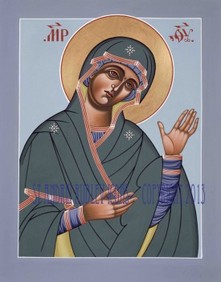 The night before we left my father's (now former) house I lay awake all night praying for the intercession of the angels and the saints: I invoked all of my heavenly friends by name. I first called upon Mary, the Mother of Jesus who is not only spiritually my mother, too, but the one who intercedes for us when we are in need. I called upon St. Joseph, who is not only the earthly father of Jesus, but my father's patron. I called upon the Archangels, St. Michael for whom I am named, St. Gabriel to whom Dad has a devotion (the one who helped Mary and Joseph) and St. Raphael, the healer who in the Old Testament helped Tobit to travel. Then I called upon the guardian angels of all involved to help us to get Dad to his new home safely. I invoked St. Padre Pio, St. Therese of Lisieux, St. Teresa of Avila, St. Joan of Arc, St. Francis of Assisi, St. Ignatius Loyola, Blessed Basile Moreau, Blessed Pier Giorgio Frassati, and Blessed John Henry Newman, to name but a few. Then I asked all the countless others, including my beloved dead friends and relatives, for their intercession as well. Finally I returned to directly praying to the Father asking for His mercy and protection, but also for the personal strength to do what I did not think I could do. During that night of prayer, it became clearer to me that this is really what Advent is all about. It is about recognizing how our humanity and His divinity became one. We who are human need him; we are dependent upon Him, just like children. There is nothing we can do without God. Simultaneously, God wants to be one with us. He is Emmanuel, God with us. The reading for the Sunday of the Fourth week of Advent from Isaiah says this: "The Lord spoke to Ahaz, saying: Ask for a sign from the Lord, your God; let it be deep as the nether world, or high as the sky! But Ahaz answered, "I will not ask! I will not tempt the Lord!' Then Isaiah said: Listen, O house of David! Is it not enough for you to weary people, must you also weary my God? Therefore the Lord himself will give you this sign: the virgin shall conceive, and bear a son, and shall name him Emmanuel." (Isaiah 7:10-14) God wants us to ask for what we need. He wants us to ask for miracles when we need them because He wants to be present and active in our lives. He bent low and came down from Heaven to enter our humanity. He does not want us to think of Him as merely an observer. He wants us to involve Him in our lives. The Son of God came to be with us actively. And as Isaiah had to tell Ahaz who had a bout of false humility thinking he should not ask God for something He was freely offering, we need to hear the response with all our heart and soul: “The Lord himself will give you this sign: the virgin shall conceive, and bear a son, and shall name him Emmanuel.” That is, the Son of God is here. God has already become one of us. 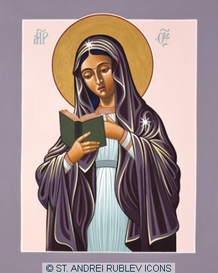 Late Advent invites us into the realization that the Incarnation was the most miraculous thing that has ever occurred: God left Heaven to become a human so that He could help us become more like Him. He came into our weakness and brokenness so that He could fulfill the promises made by His Father long ago. He came to bring us healing, wholeness, and salvation. He came to bring us new life forever with God eternally. But to do so, He had to enter into our human condition. Divinity mingled with humanity so that forever it would be so. There is not one single thing in all of that which is left untouched by the miraculous. That God would even think of coming into our world is nothing short of mind-boggling. The Incarnation was not a once-and-done incident. God has been part of our world since the beginning of time, but once He entered it as a little baby everything changed. He is now present in a new way such as in the miracle of getting a house sold, packed up, legal issues accomplished, phone calls made, a reservation made for assisted living in no time flat, and getting a very weak, elderly man moved, all in a two week period. Everything is gift and all is miraculous. God is present in the smiles and kindly faces of nurses and doctors, aides, kitchen workers, and employees who are in service professions. He is present in the planes that get off the ground on time in blizzards and friends who come to help unpack and put together furniture. He is present in the supportive friends and family who call to offer words of support. God is present in all those ways and countless more when we open our eyes and look. Then we learn, as did Ahaz, that we should never shy away from asking God for His presence and activity in our lives. He is ever faithful to His promises. God came into our world, as the Father promises, in order to meet us face to face. The preface prayer at Mass during late Advent tells us that Mary bore Him in her womb with love beyond all telling. The One whom she bore, was and is, Love beyond all telling. This child-to-come (who in reality is already come) is peace and mercy incarnate. All the pieces came together in a choreography that could only be designed by the King of Love, God the Father. Would He have done this, gone to all that effort (so to speak), just for a one-time gesture? Would He have done all this just to give us a quaint Nativity scene for our churches and tabletops? If that is what we think, then we are truly missing the miracle of it all. He came so that we might realize that the desire of Divinity is to always and forever mingle with and be part of our humanity. Everywhere we are, He is. He wants to give us miracles such as the ones I have described; therefore we need to continually ask. And when we do not readily see these miracles, we need to remember that not everything we ask for is meant to be. When those times occur, we need to remember that there are still miracles occurring, but they are not visible, or maybe they are not the ones we asked for, but they are miracles nonetheless. He is ever with us. There is not a moment of our lives in which He is absent or unaware. He is Emmanuel. May we have the grace to recognize the miraculous which abounds all around us this Advent and always! May we continually call upon His name, Jesus who is Emmanuel, for all that we need! May we trust in His grace and in His presence in our lives! May we enter into the darkest part of Advent which begins to be illuminated by the Star which heralds His coming with joyful expectation! And may we be filled with a deep felt-sense of His love and care for each of us personally, no matter what our circumstances! Let us continue to meet in the Heart of the Lord of Love! Marana tha! Peace! The photo is mine, taken on Long Island many years ago at the Cenacle Retreat House. The two icons are the work of Rev. William Hart McNichols. The first is called Mother of God She Who Hears the Cries of the World which can be found at http://www.standreirublevicons.com/gallery-views/mother-of-god-gallery/product/220-mother-of-god-she-who-hears-the-cries-of-the-world?Itemid=103. The second is called Mother of the Incarnate Word and can be found at http://www.standreirublevicons.com/gallery-views/mother-of-god-gallery/product/226-mother-of-the-incarnate-word ©Michele L. Catanese 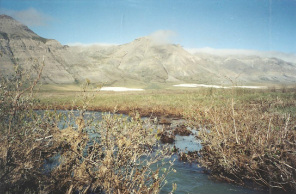 A number of years ago I had the blessing of a marvelous vacation to Alaska. On the last day we took an excursion above the Arctic Circle to the Gates of The Arctic National Park. We flew to a town called Anaktuvuk Pass in a small US mail plane with the mailbag behind our seats. Anaktuvuk Pass is surrounded by the Brooks Mountain Range; the only way in or out is by plane. While we were in this stunningly beautiful place, we were treated to a trip by ATV through the land surrounding the little 6 block by 8 block town inhabited by native Alaskans. The trip took us out on the semi-frozen tundra and to my utter shock and delight I found that what looked lifeless and dull at a distance, was indeed teeming with life. All that appeared to be almost grey from a distance was indeed full of little plants and tiny flowers. It was indeed alive in ways that I never expected. The third week of Advent is filled with the surprise of finding life when we may least expect it. Even though we are very deep into the waiting for Christmas in the midst of all the rich Advent images, we stop and exult at the sheer magnitude of what is about to happen. It is an occasion of rejoicing because the time is almost nigh for the entrance into our world of the Long Awaited One. Of course, Jesus has already come, but we are rejoicing not only at that realization, but in the hope of His return when we can all be one in Heaven rejoicing without end. The reading from Isaiah on Sunday proclaims what will take place at the coming of the Messiah: "The desert and the parched land will exult; the steppe will rejoice and bloom. They will bloom with abundant flowers, and rejoice with joyful song." (Isaiah 35:1-2) As in my Alaska experience, the third week of Advent reveals to us that there is life even in the most remote place; as we are most harried and things may look the bleakest as if they are nothing but grey, we will find abundant life, teeming and overflowing. And at this our hearts will rejoice. As we approach the feast of Christmas it becomes easier to become overwhelmed by the ‘doing’ and lose track of the ‘being.’ If only we could just stop everything, brew a cup of tea and have a delightful visit with a friend, a delicious nap cuddled up by the fire, or better yet, to have that tea while visiting with the Lord in prayer. We could even put on some soft music, gazing upon our Nativity set, maybe with a candle burning. The din of the shopping mall would be far, far away. No pressure to write Christmas cards, no stress about what the menu is or when the groceries will be bought. Ah.... the peace of it all. And to this I say, why not? We would be missing the point entirely if we could not even find a few minutes to stop and enjoy the reason behind the season, as the saying goes. 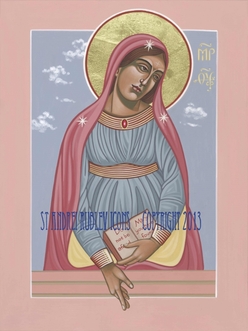 The third week of Advent calls us to rejoice, but to do that we have to think about why we are rejoicing. Just when everything outside of us is calling us to hurry up the pace, the liturgies are calling us to do the opposite: slow down and smell the pine trees! Rejoicing is not always a frenetic activity. The rejoicing that we are called to in this time is to a deep interior joy. It is the kind that comes from being in the presence of God. It is the rejoicing that comes with spending a bit of time recognizing how blessed we are to be loved by such a God that He would bend low to touch the earth and spend a while walking with us in order to give all for us. It is the rejoicing that recognizes that we deserve none of it, yet we do not have to earn it. His coming is sheer gift from God to us. The rejoicing is in knowing we are loved with such an amazing, out-of-this-world love that there is nothing we can do to merit it, or to lose it, or to alter it: we are loved just because He is love and He made us infinitely loveable. Wow! If you think this is easy for me to say as I sit at my keyboard typing, not so. In the midst of what I thought would be an Advent wrapped in meditations and the choices I thought would be routine, the Lord had a different kind of Advent in mind for me: the most hectic Advent I have ever experienced. It is so fraught with important decisions and the breakneck immediacy of the needs of others, that it is incredible. You see, both my mother-in-law and my father are in the midst of moving to my city. Both have needs that are vastly different and both moves, by necessity, are coming at the busiest time of the year. At present my father lives all the way across the country from where I live, so a trip to visit him during the first week of Advent turned into "Oh my goodness, we need to move him across the country in no time at all." There are too many details to explain why, but at the busiest travel season of the year, we are flying back and forth to facilitate this, calling seemingly every organization known to humanity to turn this off and turn that on, figuring out health issues, etc., and all before Christmas. Yet in the midst of all of it, shopping for furniture and sundries at the busiest time of the year when I am usually ‘allergically-adverse’ to shopping malls and stores of any type, here I am doing all of it. One might think, "Oh poor dear. There goes Advent and probably Christmas, too." But you know what? I am having the most incredible Advent I have ever had. The choreography has been mind-bogglingly smooth in nearly impossible timing. The only way all this could be happening is by the power of God. And while I would have liked one or two more daily Masses, the Body of Christ is all around me in the kindness of many, many people. My Advent, while filled with much activity, has been filled with reflection on Mary traveling in haste to the hill country to visit her pregnant cousin Elizabeth as I travel in haste to get to my father; the difficulty of Mary traveling while 9 months pregnant on the back of a donkey with her concerned husband Joseph, as I wade through the throngs in the airport in line after line; the repeated pronouncement that there is no room at the inn the Holy Family received, when trying to get reservations to fly at a particular time; the kindness of strangers also making the journey to their hometowns to register for the census, while I journey with those who are longing to see their families; the darkness and cold of night in a place where Joseph no longer lived, as I negotiate the bone chilling cold I am no longer used to; the waiting of Zechariah who was struck speechless by the news brought to him by the angel, while I am speechless at the willingness of my father to move to a new city while in older age. Advent abounds with life, just as the tundra, while seeming to be cold and lifeless, teems with abundance. 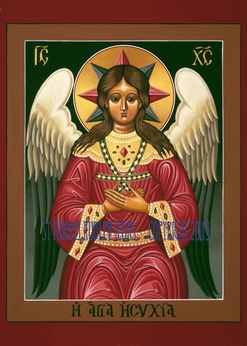 Advent is not about activity or the lack of it. It is about the state of our heart. Advent waiting is not about stopping still in your tracks. Waiting is an active pursuit, but the reality of it is what goes on within us, not outside of us. We can be running all over the place, yet keep our calm if we ground ourselves in the gift of the season: Jesus. We can have that time to chat and reflect with the Lord in the morning or evening in what might be the space of having a cup of tea. That's all it takes. Just long enough for the Lord to help us to open our eyes to all the places He shows up with Advent beauty in our day-to-day busyness as we are indeed readying for the arrival of Christmas. Advent joy is in being ready to receive Him now, not on one date in the middle of late December. Advent is teeming with life if we but take the time to look and if we let Him open our eyes to it in the midst of whatever it is we are doing. "Then the eyes of the blind will be opened, the ears of the deaf be cleared; then will the lame leap like a stag, then the tongue of the mute will sing." (Isaiah 35:5-6) May we sing the song of rejoicing as we enter into the deepest part of Advent! May we realize the blessings of family and friends with whom we celebrate this time of year! May we find peace in the midst of the busyness of the season, knowing that He is already here! May we let go of the stress of that which is exterior and rejoice in the quiet of our heart! May we rejoice in being loved so greatly, as Jesus comes to us in many ways! And may we find the abundant life and love of God in the midst of all that is around us so that we our heart might leap like a stag! Let us continue to meet in the heart of our Lord! Marana tha! Peace! The photo is one of mine. It is out on the tundra near Anaktuvuk Pass, Alaska, facing one of the mountains of the Brooks Range. The icons are the work of Rev. William Hart McNichols. The first is called Mother of Holy Hope and can be found at http://www.fatherbill.org/all-categories/product/292-mother-of-holy-hope The second is called Hagia Hesychia Jesus Christ Redeemer Holy Silence and it can be found at http://www.fatherbill.org/gallery-views/divinity-and-angelic-figures-gallery/product/283-hagia-hesychia-jesus-christ-redeemer-holy-silence ©Michele L. Catanese 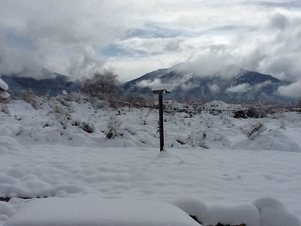 My Advent waiting was challenged last weekend as I was in an airport getting ready to leave the northeast. Just as we were boarding our plane it began to snow. I was aware of a blizzard that was supposed to strike the area and realized this snow was the beginning. I knew that if we did not take off soon we might get caught in that city, midway between our starting point and our home. The plane was "pulled aside" to be de-iced, the third plane in line for this important safety precaution. Snow began to fall even faster and heavier and all I could think of is that if we waited any longer we would be stranded. Waiting was not at all what I wanted to do. Yet as I reflected on this after the plane finally got cleared for take-off and was airborne, I realized that this sort of challenge was at the very heart of Advent-waiting: that is, waiting is difficult work. These past few weeks have been rather hectic for just about all of us, I would venture to guess. This time of year is particularly difficult for many people, whether it is due to too much work and not enough time to accomplish all the things we need/want to do, or whether it is due to having experienced a loss at this time of year which makes it a bit painful to face the holidays. Somehow this time of year is supposed to be joyous and festive, but with all the burdens we carry, we may not feel that way at all. We may feel harried, no matter how much we try to stay in the stream of the peacefulness of the Advent season or no matter just how much music we listen to that says we should be cheery. Or perhaps we may have peace in the midst of it all, but find that many of our friends do not feel that way, and we are challenged to try to be a source of peace for them. Once again, let us turn to the prophecy of Isaiah to find our peace. Isaiah 40:28-31 says this: "Do you not know or have you not heard? The Lord is the eternal God, creator of the ends of the earth. He does not faint nor grow weary, and His knowledge is beyond scrutiny. He gives strength to the fainting; for the weak He makes vigor abound. Though young men faint and grow weary, and youths stagger and fall, they that hope in the Lord will renew their strength, they will soar as with eagles' wings; they will run and not grow weary, walk and not grow faint." The Lord is reminding us that everything is in His hands and that we have nothing to fear or over which to be anxious. A more appropriate message could not be found! The truth of the matter is that God is the master of all there is. God does not tire and so when we have burdens and are feeling overwhelmed, all we have to do is to put them in His hands. This requires trust. We have to let go of our burdens when we most feel like clinging to them. God Himself is reminding us that we need to hope in Him and not our own ability (or inability) to get things done. He is reminding us that He has our best interests in mind even when we truly cannot see it. He is reminding us that when we are feeling weakest, He will be our strength. How we need this message especially when the waiting becomes burdensome because we have so much to do! 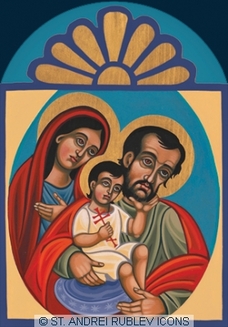 In the calm before the blizzard which we may see coming, waiting can become a challenge: we feel helpless as we see it coming and we can do nothing to ‘get the plane off the ground.’ It is in the hands of someone else and we are powerless to get 'aloft' on our own. It is also difficult to wait when we are surrounded by the storm as it hits, because we think all is lost. But God is trying to tell us that we need to trust that He will get us through if we keep our eyes on Him. He is coming to enter our world of anxiousness and hectic frenzies. He is coming into our world as a vulnerable baby in order to enter into the fears and worries we have, vulnerable as we are vulnerable. He could have come as the king He truly is, but instead He chose to enter our state of constant vulnerability. This was chosen because He wanted us to know that He truly understands what our lives are like, and because He loves us. We must remember for whom it is that we wait: He is the Prince of Peace. This Prince comes as a tiny baby within the safety of Mary's womb, yet vulnerable to all the dangers that lurk in the world around her. Her pregnancy was an opportunity for anxiety; but His presence no doubt calmed the fears of Mary, and also of Joseph, as they waited in uncertainty, wondering how to raise such a child. It would seem that even in the bucolic scene of wise men and shepherds to come, there is the looming storm of danger. The fact remains: Jesus was in danger from the moment He was conceived by the Holy Spirit in His mother’s womb. He who is the Prince of Peace would be attacked before He could even speak. His parents had to constantly wait for God to guide them, and Jesus had to live in an uncertain world. But being the Prince of Peace His very presence points us to the words of Isaiah: “Have you not seen and have you not heard? …They that hope in the Lord will renew their strength.” It is difficult to remain calm unless one stays in the moment and finds the presence of God there. He is the one who helps us when we are feeling overwhelmed and faint. He is our strength. 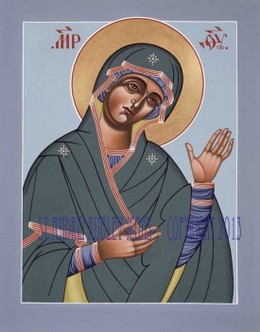 It is interesting, but not a coincidence, that this second week of Advent is punctuated with two feasts of Mary, the Feast of the Immaculate Conception and Our Lady of Guadalupe. Mary is the Immaculate Conception; that is, she was conceived in her mother's womb free from sin in anticipation of her 'yes' to God. God prepared her, knowing that while she was always free to say no to Him when He sent the angel to her, her heart would be so pure and so turned toward Him that she would indeed say yes. Many people get confused by this, but remember that she always maintained her freedom. God, however, is God of all time, so He already knew what her response would be. Therefore He made her exempt from the stain of sin so that she would be a fitting vessel for His Son. To put that into the perspective of Advent, she spent her whole life waiting for the moment of encounter with God, yet she did not know it would be as the mother of His Son. What she did know was that God was all around her, and her waiting was always pregnant, in an openness to Him that always sought to be filled with God’s presence. She trusted the words of prophets like Isaiah who prophesied a Messiah. She was a woman of waiting for God to fulfill His promises. She trusted and she waited. And He came. The second Marian feast, the Feast of Our Lady of Guadalupe, teaches us that Mary reaches out to the lowliest, humblest of God's people when we are in need. God hears the cries of His people. Always. Mary, who understands our needs, and who was one of the lowly ones during her lifetime, knows that the waiting of the poor is indeed very painful and difficult. Those of us poor in spirit, or who are lonely, missing a loved one, worrying about the bills, needing a job, needing mercy or healing, worrying about someone we love.... we all find waiting very difficult. But Mary reminds us that God has not forgotten us and that He sends her as His messenger of hope. We, who find waiting difficult, are in His sight. And Jesus, the one for whom we wait, continues to give us strength and hope. We wait, after all, for the Prince of Peace whom Isaiah told us is coming. He comforts us, He gives us strength, He renews us when we are faltering, He gives us wings as of eagles. In the midst of the storm of whatever assails us during our preparation, He is ever present helping us to carry our burdens. And in the midst of the season of challenges to our waiting, the time can be transformed if we keep our eyes on Jesus and trust in His message. We do know and we have heard! He is ever with us, helping us as we wait for Him to be born yet again into our vulnerability and our fears, transforming them into the peace of knowing we are loved eternally. May we pray for the ability to see and hear and know the calming presence of the Messiah who comes! May we be calmed of our fears and all which challenges our waiting! May we be filled with the joy of knowing that His coming is soon! May we have the trust and the hope that in the midst of the storm of preparations and distractions, He is here to give us strength! Let us continue to meet in the heart of the Prince of Peace who comes! Marana tha! Peace! The retablo and icon are the work of Rev. William Hart McNichols. The retablo is called Retablito de la Sagrada Familia and it can be found at http://www.standreirublevicons.com/gallery-views/jesus-gallery/product/46-retablito-de-la-sagrada-familia The icon is called Mother of God She Who Hearts the Cries of the World and can be found at http://www.standreirublevicons.com/gallery-views/mother-of-god-gallery/product/220-mother-of-god-she-who-hears-the-cries-of-the-world?Itemid=103 The photo was also taken by Fr. Bill. It is a winter scene from Arroyo Seco, New Mexico. *This is a nice time of year to purchase a giclee or plaque of an icon as a gift, so do check out Fr. Bill's website when you go to the links I posted. Remember, I get nothing from endorsing his work except the joy of sharing the beauty of the icons and images with you. ©Michele L. Catanese  In this first week in Advent we have begun a journey as we are invited to the Mountain of the Lord. The beautiful first reading of the First Sunday of Advent (Isaiah 2:1-5) sets the stage for us to begin the watching and waiting for the Lord. However, Isaiah reminds us that it is not a passive waiting, but rather an active one. While prayer and silent waiting are very much part of this season, the prayer must move us outward to journey toward Him. The Lord of All will come down from Heaven to become one of us on earth, but He is asking for us to journey to meet Him, also. The reading from Isaiah reminds us that our waiting means we will have to be looking and listening for Him during these days of waiting. Think of what was going on from the moment the angel spoke the words to Mary and she said yes. Heaven began preparing to touch earth, but earth needed to be receptive. Mary did not sit passively and wait for the birth. Instead her heart led her outward to her cousin Elizabeth who was also with child. When Joseph learned that this child was the Son of the Living God he began to prepare his heart for whatever was to come. At some point the magi had to begin their journey in order to get to Bethlehem in time. The Scriptures do not give us an accurate time line of when they began their journey or when the Star of Bethlehem began to shine, but we do know that they came a great distance, which means that as soon as they were aware of the Star, they had to prepare for the trek, and then move outward to wherever the Star led them. 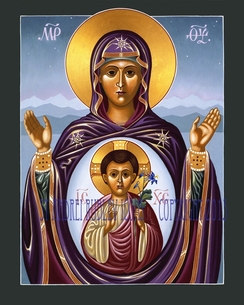 All of the people involved in the familiar Nativity stories had to begin to prepare room for the coming Messiah, whether they understood fully or not. All of them had to make changes. There was Zechariah who became mute due to his reluctance to believe the message of the angel when he had his encounter in the Temple. Being mute meant he really had to learn to listen on a new level. It seems Elizabeth chose to do that, because Luke tells us that she reflected on what happened by going into seclusion for a while to pray and discern the miracle of becoming pregnant when in her old age. Isaiah's message is that all people are invited to come to the place where God is, which he refers to as the Mountain of the Lord. This is clearly a reference to the Exodus event in which God revealed Himself to Moses on Mt. Horeb and then gave him the Law on those sacred heights. Isaiah is using this as a symbol for the kingdom God wishes to establish. He was foreseeing a time when all nations would stream toward the mountain of the Lord looking for instruction, which is to say, seeking the Word of God. He is foretelling of a time when there will be no more war and we will "beat our swords into plowshares and our spears into pruning hooks”; a time when war shall cease and peace shall reign. That is the true Kingdom which God intends for His people. 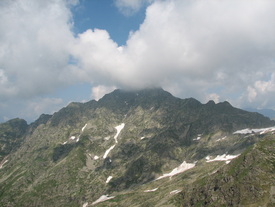 This Kingdom will be initiated by the Messiah to come, the long awaited One, the Son of God. However, we will have to do the work of ‘streaming to the mountain.’ We will have to prepare our hearts for peace. In order for us to allow our swords to be turned into plowshares we have to be willing to be disarmed. This is much easier said than done. It means we need to make a radical shift, not unlike the shift of Zechariah, the priest who did not believe in a messiah to come and yet was face to face with an angel, (something else he did not believe in), being told that what he did not believe in was, in fact, truth. We, too, must look at truths we do not believe in and see what is false about our stance. Perhaps it is that we do not believe we can be forgiven for something, or that we can forgive another for a hurt they inflicted upon us. Perhaps it is an anger we have held onto, a lack of patience we will not confront, or an unwillingness to pray we feel we cannot overcome because we believe we are too busy. Maybe we are called to disarm from our tendency to gossip, tear down, or a need to always be right. Perhaps we have a ‘defense mechanism’ which we use to go on the offensive. Whatever it is that we arm ourselves with, we are called to lay it down. But the Good News is that the Lord meets us; He comes down from Heaven for us, so that He can help us to do what we need to do. He does not expect us to go it alone. If that were the case, He never would have joined us on the journey to the mountain that was already His home: Heaven. Advent is actually a penitential season. In preparing our hearts for the coming of Jesus, we are called to let God help us be ready. This means it is a time of repentance of that which will bar the door to Him. It is a time of sweeping out the dirt and dust in our hearts and a time of preparing a room for Him to reside there. If we want to journey toward that place of peace, we have to allow peace in our hearts first. If not, we will never take a step out the door and the journey will not begin.  Thankfully we are reminded to do this every year because we never get it all done in just one short four week season. But if every year we allow a bit more disarming, a bit more sweeping out the dirt of our sinfulness, a bit more preparing, and a bit more journeying, we will eventually make it to the Mountain of the Lord. Or rather, we will discover the mountain is not that far off after all. In fact, we will discover that the mountain has been in our midst all along because He brought it to us when He came down to earth. As we go through the readings of this first week of Advent, let us pay attention to the messages of Isaiah. On Monday (Is. 4:2-6) he tells us that God will come to those who remain faithful. (Notice it is that we remain faithful, not perfect.) He will wash away our sin if we let Him. He will protect the faithful who are journeying to His mountain. On Tuesday (Is. 11:1-10) Isaiah reminds us that the Lord will send us the gifts we need for the journey, insuring peace by working justice. Of course this implies that we need to move outward toward others to help this be accomplished since we are His hands and feet. On Wednesday (Is. 25:6-10a) we find out that on His Holy Mountain God will prepare a feast for us and He will dry all our tears. On Thursday (Is. 26:1-6) we see that God removes evildoers and sets His justice over all, especially giving justice for the poor. Friday and Saturday (Is. 29:17-24, Is.30:19-21, 23-26) Isaiah reveals that the deaf will hear and the blind see, the poor will rejoice, and all wounds will be bound up.  Advent is the season in which we contemplate what the coming of the Lord really is about: the establishment of a Kingdom which will have no end, a Kingdom of peace and the beauty of holiness, (wholeness), with God forever. Advent calls us to prepare for this. It calls us to renew the journey yet again from which we have become sidetracked during the year. It calls us to be like the magi, saddling up our camels and going to a new, unknown place which we should not fear because He is not only waiting for us there, but He accompanies us on the journey. It calls us to be like Zechariah and Elizabeth who are silently waiting, their entire world turned upside down, yet trusting the message of an angel. It calls us to be like Joseph and Mary who must journey to Bethlehem into an unknown future, but who know the Lord of All accompanies them. Let us journey to the mountain of the Lord where His Kingdom of peace awaits us. Let us offer our swords and spears, trusting that plowshares and pruning hooks are what are needed to prepare the Kingdom. And let us allow Him to do the work in us that is needed. May we be trusting in the message of Isaiah which tells us that the Lord is near! May we begin our journey toward holiness anew! May we be willing to let the Lord help us turn swords into plowshares and spears into pruning hooks! May we be filled with the peace of Advent-waiting! And may we embrace this season in which we prepare a place for Him in our hearts and in our world so that we may be ready to meet Him on His Holy Mountain! Let us meet in the Heart of the Lord, where Love resides! Peace! The photos are all mine. The top one is Denali. I know it is not the same as Mt. Horeb or the Mountain of the Lord, but it is majestic. The second photo is Mt. Mucrone in northern Italy. The last photo is a path somewhere near Jacksonville, Florida. The icon is Our Lady of the New Advent Gate of Heaven by William Hart McNichols and it can be found at http://www.fatherbill.org/gallery-views/mother-of-god-gallery/product/241-our-lady-of-the-new-advent-gate-of-heaven. ©Michele L. Catanese |
Heart Speaks to Heart
|
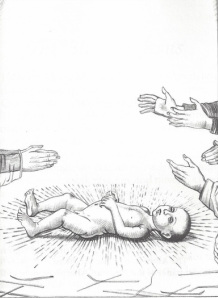

 RSS Feed
RSS Feed

